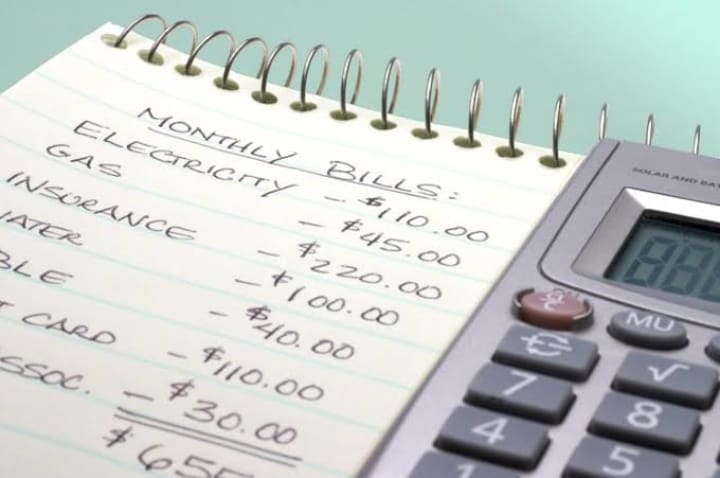Eliminate Your Student Loans Faster with These Proven Methods
Quickly Pay Off Your Student Debt: A Step-by-Step Guide

Student debt is a major concern for many individuals, as the cost of higher education continues to rise. According to the Federal Reserve, the total amount of student loan debt in the United States is over $1.7 trillion. This debt can be a significant burden for borrowers, as it can take years or even decades to pay off.
However, it is important to pay off student debt as quickly as possible. Not only will this save you money in the long run, as you will pay less in interest, but it will also free up financial resources that can be used for other purposes. Additionally, paying off debt can improve your credit score and make it easier to obtain loans for major purchases such as a home or car.
In this article, we will provide a number of strategies for paying off student debt quickly. By following these tips, you can take control of your financial future and get out of debt more efficiently.
Make a budget
One of the key steps in paying off student debt quickly is creating a budget. A budget is a plan that outlines your income and expenses, and helps you to manage your money effectively. By making a budget, you can see exactly how much money you have coming in each month and how you are spending it. This can help you to identify areas where you can cut back on expenses and redirect that money towards paying off your student debt.

Here are some tips for making a budget:
- Determine your income: Start by listing all of the sources of income you have, including your salary, any freelance work, and any other sources of money. Add up these amounts to get your total monthly income.
- List your fixed expenses: Next, make a list of all of your fixed expenses, such as rent, car payments, and insurance premiums. These are expenses that do not change from month to month.
- List your variable expenses: Variable expenses are those that can vary from month to month, such as groceries, entertainment, and clothing. Be sure to include all of your discretionary spending in this category.
- Identify areas for cutting back: Once you have a complete picture of your income and expenses, look for areas where you can cut back on your spending. For example, you might be able to save money by cooking at home instead of eating out, or by canceling subscriptions you no longer use.
- Set a goal: Finally, set a goal for how much you want to pay towards your student debt each month. This will help you to stay on track and make progress towards paying off your debt.
By following these tips and making a budget, you can take control of your financial situation and start paying off your student debt more quickly.
Consider Refinancing Your Loans
One option for paying off student debt more quickly is refinancing your loans. Refinancing involves taking out a new loan to pay off your existing student debt, often at a lower interest rate. This can be a good option if you have good credit and are able to qualify for a lower interest rate than you are currently paying.

Here are some tips for refinancing your student loans:
- Shop around: It's important to shop around and compare offers from multiple lenders to find the best deal. Look for lenders that offer competitive interest rates and fees, and be sure to consider both federal and private lenders.
- Check your credit score: Your credit score is a key factor in determining your eligibility for refinancing, as well as the interest rate you will be offered. Before you apply, be sure to check your credit score and take steps to improve it if necessary.
- Consider your repayment term: When you refinance your student loans, you will have the option to choose a new repayment term. A longer repayment term will result in lower monthly payments, but you will end up paying more in interest in the long run. A shorter repayment term will result in higher monthly payments, but you will pay off your debt more quickly and save money on interest.
- Weigh the pros and cons: Refinancing can be a good option for some borrowers, but it's important to weigh the pros and cons before making a decision. Be sure to consider your current interest rate, your credit score, and your financial goals before deciding whether refinancing is right for you.
By considering refinancing your student loans, you may be able to save money on interest and pay off your debt more quickly. However, it's important to carefully evaluate your options and consider the potential risks and benefits before making a decision.
Consider Consolidating Your Loans
Another option for paying off student debt more quickly is consolidating your loans. Consolidation involves taking out a new loan to pay off multiple existing loans, resulting in a single monthly payment. This can be a good option if you have multiple student loans with different interest rates and repayment terms, as it can simplify the repayment process and potentially lower your monthly payments.

Here are some tips for consolidating your student loans:
- Explore your options: There are several types of consolidation loans available, including federal Direct Consolidation Loans and private consolidation loans. It's important to explore your options and compare offers from multiple lenders to find the best deal.
- Consider the interest rate: The interest rate on your consolidation loan will be based on the weighted average of the interest rates on your existing loans, rounded up to the nearest one-eighth of one percent. Be sure to consider the impact of the interest rate on your overall repayment plan.
- Weigh the pros and cons: Consolidation can be a good option for some borrowers, but it's important to weigh the pros and cons before making a decision. On the plus side, consolidation can simplify the repayment process and potentially lower your monthly payments. However, it may also result in a longer repayment period and a higher overall cost due to additional interest charges.
By considering consolidation, you may be able to simplify the repayment process and potentially lower your monthly payments. However, it's important to carefully evaluate your options and consider the potential risks and benefits before making a decision.
Make Extra Payments
One effective way to pay off student debt more quickly is to make extra payments on your loans. By making additional payments above and beyond your regular monthly payment, you can reduce the overall amount of interest you pay and pay off your debt more efficiently.

Here are some tips for making extra payments on your student loans:
- Increase your income: One way to find extra money to put towards your student debt is to increase your income. This might involve taking on additional work, negotiating a raise or promotion at your current job, or starting a side hustle.
- Decrease your expenses: Another way to find extra money to put towards your student debt is to cut back on your expenses. Look for areas where you can reduce your spending, such as by cooking at home instead of eating out, or by canceling subscriptions you no longer use.
- Use windfalls: If you receive a tax refund, bonus, or other unexpected windfall, consider using some or all of that money to make an extra payment on your student loans.
- Make extra payments regularly: To make the most impact, try to make extra payments on a regular basis, rather than just making a one-time payment. Even small additional payments can add up over time.
By making extra payments on your student loans, you can reduce the overall amount of interest you pay and pay off your debt more quickly. By increasing your income, decreasing your expenses, and using unexpected windfalls, you can find extra money to put towards your student debt and make a significant impact on your repayment plan.
Consider Switching to an Income-Driven Repayment Plan
If you are having trouble making your monthly student loan payments, one option to consider is switching to an income-driven repayment plan. These plans are designed to make your monthly payments more affordable, based on your income and family size.

Here are some tips for switching to an income-driven repayment plan:
- Determine your eligibility: To be eligible for an income-driven repayment plan, you must have a partial financial hardship, which means that your monthly payments under the standard repayment plan are higher than what you would pay under an income-driven repayment plan. You can use the Department of Education's Repayment Estimator tool to determine your eligibility.
- Choose the right plan: There are several types of income-driven repayment plans available, including the Income-Based Repayment (IBR) plan, the Pay As You Earn (PAYE) plan, and the Revised Pay As You Earn (REPAYE) plan. Each plan has different eligibility requirements and terms, so it's important to choose the plan that is right for you.
- Gather required documents: To switch to an income-driven repayment plan, you will need to provide documentation of your income and family size. Be sure to have this information ready when you apply.
- Apply for the plan: You can apply for an income-driven repayment plan online through the Department of Education's website, or by contacting your loan servicer.
By switching to an income-driven repayment plan, you may be able to make your monthly student loan payments more affordable and get back on track with your repayment plan. However, it's important to consider the potential risks and benefits before making a decision, as these plans may result in a longer repayment period and a higher overall cost due to additional interest charges.
Seek Out Assistance Programs
If you are struggling to pay off your student debt, there are several assistance programs that may be able to help. These programs can provide financial assistance, loan forgiveness, or other forms of support to help you manage your student debt.

Here are some tips for finding and applying for assistance programs:
- Research your options: There are many different assistance programs available, including forgiveness programs, employer assistance programs, and grants. Be sure to research your options and consider which programs may be right for you.
- Determine your eligibility: Each assistance program has its own eligibility requirements, so it's important to determine whether you qualify before applying. Be sure to carefully review the requirements and gather any necessary documentation.
- Apply for the program: The application process for assistance programs can vary, so be sure to follow the specific instructions provided. This may include completing an application form, providing documentation, and submitting any required materials.
- Follow up: If you are accepted into an assistance program, be sure to follow the terms of the program and keep track of your progress. If you have any questions or need assistance, don't hesitate to reach out to the program administrators for help.
By seeking out assistance programs, you may be able to find financial support and other resources to help you pay off your student debt. However, it's important to carefully research your options and consider the potential risks and benefits before applying for any program.
Explore Other Options
If you are struggling to pay off your student debt, there are several other options you can consider. These options may be able to provide relief or assistance in managing your debt.

Here are some other options to consider:
- Loan forgiveness: In some cases, you may be eligible for loan forgiveness, which means that your remaining debt will be forgiven after a certain period of time. For example, the Public Service Loan Forgiveness program forgives the remaining balance on Direct Loans for borrowers who have made 120 qualifying payments while working in public service.
- Loan rehabilitation: If you are in default on your student loans, you may be able to rehabilitate your loans by making nine on-time, consecutive monthly payments. This can help you to get back on track with your repayment plan and avoid negative consequences such as wage garnishment or a tax refund offset.
- Loan discharge: In certain circumstances, you may be able to have your student loans discharged, which means that you are no longer required to pay them. This may be possible if you are permanently disabled, if you attended a school that closed while you were enrolled, or if you were the victim of certain types of fraud.
- Deferment: If you are facing financial hardship or returning to school, you may be able to temporarily postpone your student loan payments through a deferment. This can provide temporary relief, but interest will continue to accrue on your loans during the deferment period.
By exploring these options, you may be able to find relief or assistance in managing your student debt. However, it's important to carefully research your options and consider the potential risks and benefits before making a decision.
Conclusion
Paying off student debt can be a significant challenge, but it is important to take action and develop a plan to pay off your debt as quickly as possible. By following the strategies outlined in this article, such as making a budget, consolidating or refinancing your loans, making extra payments, switching to an income-driven repayment plan, seeking out assistance programs, and exploring other options, you can take control of your financial situation and make progress towards paying off your student debt.
Remember, the key to success is to take action and be proactive in managing your debt. By following a plan and staying committed, you can pay off your student debt and achieve financial freedom.
*Please consult a financial advisor for personalized advice. The information provided here is for educational purposes only.
About the Creator
Zohaib Sunesara
Author @ Cuddle Pixie I dive into the depths of parenting with compassion, humor, and practical advice. With a passion for nurturing both children and parents, join me on our journey through the joys and challenges of parenthood.
Reader insights
Outstanding
Excellent work. Looking forward to reading more!
Top insights
Easy to read and follow
Well-structured & engaging content
Expert insights and opinions
Arguments were carefully researched and presented
Masterful proofreading
Zero grammar & spelling mistakes
On-point and relevant
Writing reflected the title & theme






Comments
There are no comments for this story
Be the first to respond and start the conversation.